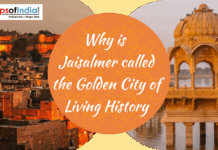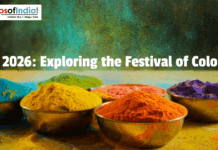Did you know that many decisions that we make regarding purchase of a product or service is influenced directly or indirectly by someone classified as an ‘influence marketer’. They are now everywhere, on Facebook, Twitter, Instagram, Snapchat and ‘niche’ blogs. Yes, we follow them and their advice all the time, and many of us actually end up making up our otherwise ambivalent minds, into buying something.
It doesn’t just end with an ‘item’, it could well be a trip, a hotel, a restaurant or even a clinic. Everything out there is being recommended to us by an ‘expert’. That’s the power of influencer marketing and the rage is catching on.
Is it a new fad?
Yes and no. Influencer marketing has been around for a long time, it’s just that we didn’t call it such nor did manufacturers or suppliers give much attention or recognition to the power of the influencer.
Remember, our regular ‘columnist’ in our daily newspaper telling us each week which film is good and worth watching and which ones we could outright avoid? Same is true for another set of expert – the ‘foodie’, who tell us about the newest eatery in town and give us their ’expert’ comments on the food, ambience and service.
This is ‘direct’ influencer marketing which is undisguised and very direct, since their columns state the very purpose. But with the advent of social media, many active bloggers, tweeters, instagrammers and snapchatters, have turned into homegrown ‘indirect’ influencer marketers. While some have remained simple hobbyists penning down their thoughts and experiences on subjects of their interests, many have now turned it into a full time profession for which they get paid. And they are all over social media, enough to make top brands take notice of their following on social media and the power they exercise through their ‘opinions’.
What is Influencer Marketing?
Traditional marketing has followed print and electronic advertising, catalogues, direct mail, telemarketing, roadshows etc to directly reach out to the potential customer in an attempt to persuade him or her to buy a particular product or service. These channels, though still used, have reduced their ability to attract and influence potential clients, besides, competition is driving too many players offering too many products to a limited clientele, only to end up driving away potential buyers to other options.
This has forced manufacturers and suppliers of goods and services to turn to the increasing popularity of social media and ride the boom to reach out to a targeted and relevant potential clientele. If one were to go by the increased marketing spends on social media, one would tend to believe the concept is working.
However, it is the army of ‘influencer marketers’ that are indirectly and subtly driving their followers towards these goods and services. So what makes an influencer marketer so powerful?
We as consumers have always relied on listening to a trusted source for an advice or recommendation, or even a caution, before taking a decision to buy something. In the early years, our decisions were ‘influenced’ by our parents, grandparents, uncles and aunts, and other relatives and friends, who would generously give us friendly advice.
With social media, the bloggers, tweeters, instagrammers and the snapchatters that we follow, have replaced the traditional influencers. We now look to their ‘opinions’ to help us make an ‘informed’ decision. That’s influencer marketing working at its powerful best.
Is influencer marketing a full time profession?
For many, it is. And the income can be substantial depending on the number of followers you have, the niche in which you specialize, and the medium that you operate on.
Top brands pay significant amounts to bloggers of ‘niche’ sites with a large following and these payouts can be ‘per blog’ basis or per campaign basis. Most bloggers maintain and write on specific topics. For instance, in the case of a travel specific site, and within the travel fold, it could be a specialist site focusing on say – adventure travel, and a further niche could be say ‘air’ adventure travel.
So in the case of a top company offering specialized camping and activity-specific gear, it would make sense for them to reach out to someone writing relevant content and having followers of ‘air’ adventure travel. Their products would be of immediate interest to most readers and the opinion, direct or indirect, of the blogger maintaining the site would make a positive difference in promoting sales of the specialized gear.
Payouts to these bloggers may be in cash, kind, or in many cases, both. A free all-expenses paid trip to say a parasailing or paragliding trip to the Himalayas would not be unusual.
Same for a leisure travel blogger who writes on exotic locations. An all-expenses paid invite for a stay at a new exotic hotel in New Zealand or deep in the Amazon would be considered normal.
Automobile companies rely heavily on niche bloggers, tweeters etc to write favourably on their new vehicle launches, as each social media ‘expert’ has a significant following who rely on the blogger’s ‘advice’ before making an ‘informed’ decision. These ‘experts’ are given the first peek into new launches and usually accompanied by an all-expense paid trip to the launch site.
These days service providers like clinics, hospitals, consultants, e-commerce companies, and film producers are all increasingly turning to influencer marketers to push their services.
Experts can get paid Rs 10 to Rs 3,000 per tweet, while bloggers can make up to Rs 1 lakh on just one product, depending on the budget and product profile. At the international level, payouts can be very high by Indian standards. That’s the reason why many part time bloggers and tweeters are now turning their passion into a full time profession.
But is influencer marketing here to stay?
Good question. There are too many people out there offering their ‘expert’ advice and opinion, and most are just amateurs whose ‘style’ of writing attracts followers. The problem is that since they are paid, they naturally have a ‘vested’ interest in promoting whatever they happen to write on, which means that what we get to read is not necessarily a fair and unbiased assessment.
If that is the case, would we really like to base our decision to buy on someone who is not truly credible? That’s a question that is bound to increasingly crop up when we have all kinds of amateur bloggers and tweeters making influencer marketing a full time career, and when that happens, this too will become a passing fad.
So if you are planning to take up ‘influencer marketing’ as a full time profession, now is a good time to get in, how long is it likely to last, is a million dollar question.





